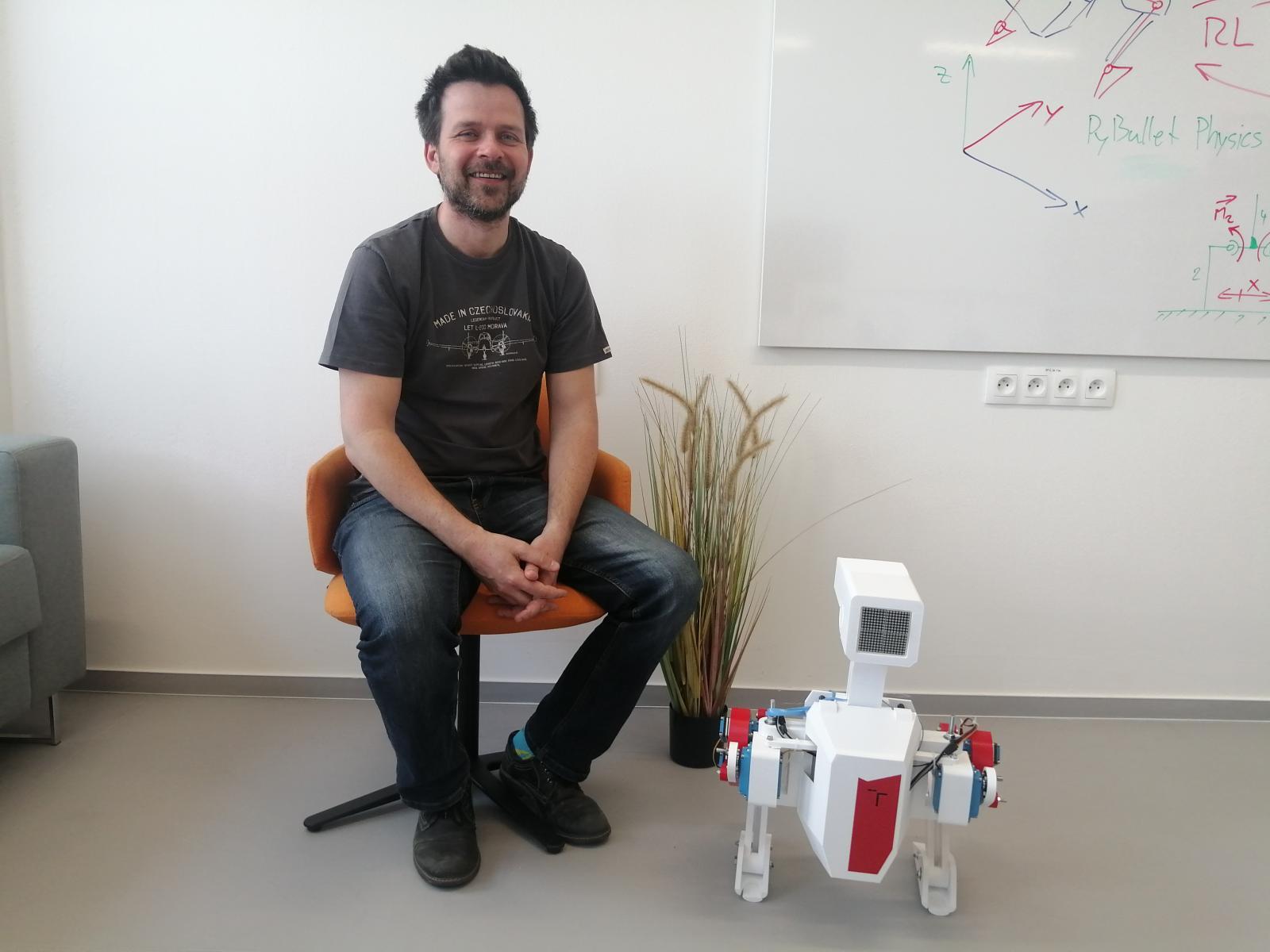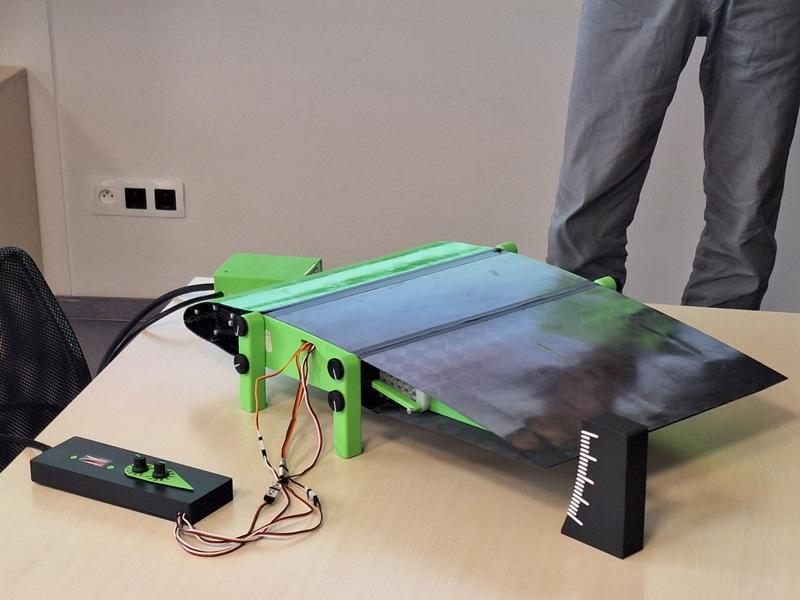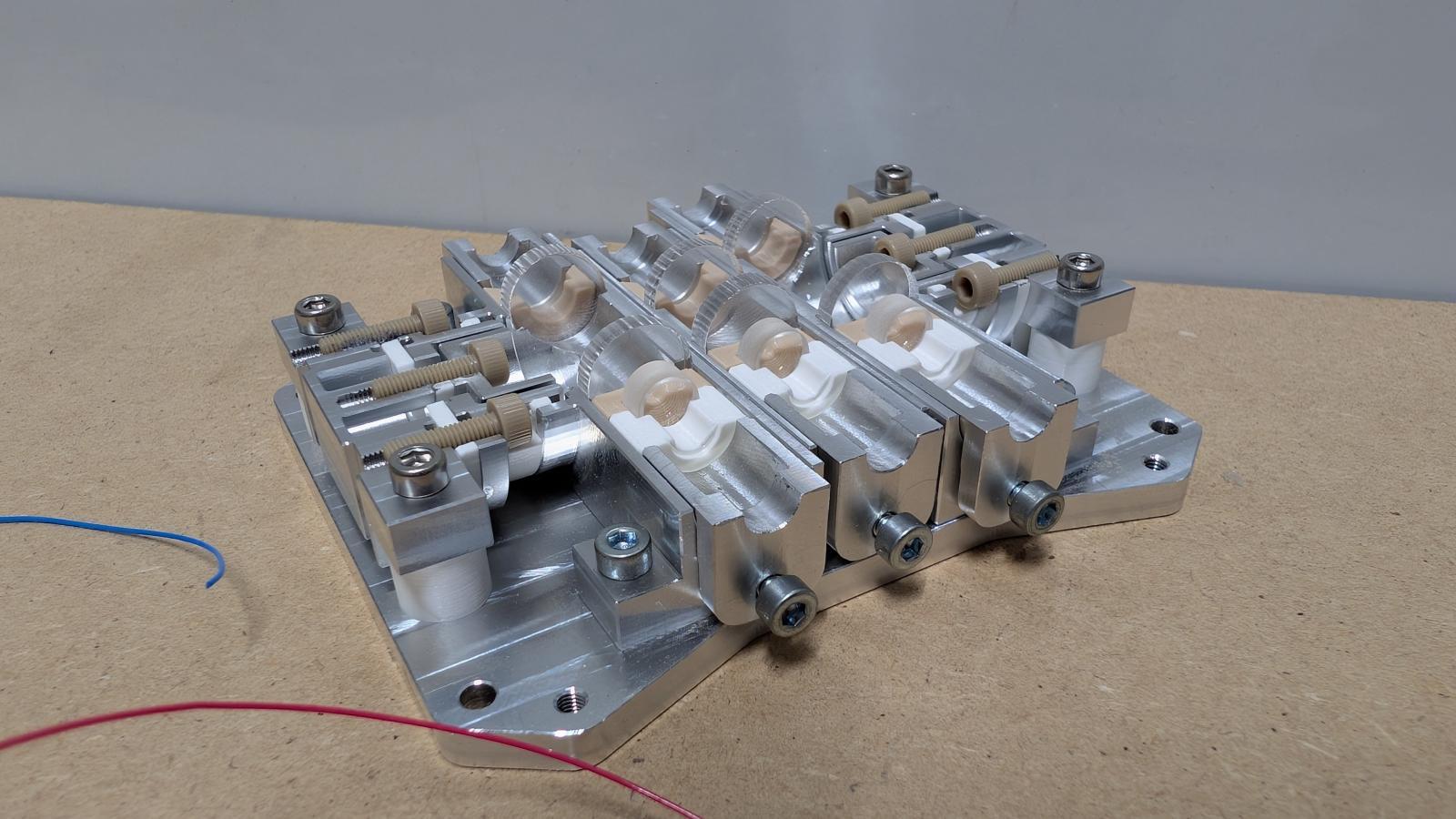BRNO UNIVERSITY OF TECHNOLOGY
Antonínská 548/1, 601 90 Brno
Czech Republic
phone numbers list
e-mail: vut@vutbr.cz
international@vutbr.cz
http://www.vutbr.cz/en



The two-legged autonomous robot PAWO made from commonly available components, a morphing wing inspired by birds, a demonstration of an experiment for the upcoming BrnoSAT space mission, or a Fanuc robotic cell with AI for sorting parts – these are highlights from the Brno University of Technology (BUT) exhibit at this year’s International Industrial Fair (MSV). The university will showcase a total of 22 exhibits at booth no. 25 in Pavilion A1. Visitors to MSV will also see other cutting-edge technologies from BUT as part of the Czech National Exhibition or at the National Recovery Plan (NPO) stand.
Two-legged autonomous robot PAWO from the Laboratory of Bioinspired Robotics at the Faculty of Mechanical Engineering (FME BUT) is an entertaining companion for social interaction that can walk, wiggle, and respond to touch: “It’s similar to the Star Wars droid BDX and an example of so-called off-the-shelf robotics – created using readily available components and 3D printing, making it a unique platform for education in robotics. In this project, students can easily connect artificial intelligence, reinforcement learning (a learning method based on rewards, ed. note), and modern manufacturing,” explained researcher Stanislav Věchet.

Marketing cookies must be enabled to play the video. You may change the setting here. You can open the video in a new panel.
| The Czech National Exhibition will present Smartbox, a unique solution from FEEC BUT for smart measurement and load control in power grids. It allows the conversion of already installed electricity meters into smart devices with ensured cybersecurity and connectivity within the 5G+ infrastructure. In 2024, Smartbox received the Golden Amper Award. The exhibition will also feature the activities of two student teams from BUT – YSpace and Brno Mars Rover. The first succeeded in a prestigious ESA program and is preparing a satellite space mission. The second is building an autonomous rover named Freya for a Mars mission, with which the team reached the finals of an elite European robotics competition this year. |
Morphing wing segment using metamaterials (artificially created materials with properties not normally found in nature, ed. note) is the result of the international BAANG project, in which VUT collaborated with three leading European universities. The prototype demonstrates how structural weight can be reduced and flight performance improved by taking inspiration from nature, specifically from birds. Smooth morphing of the wing brings the possibility to reduce aerodynamic drag and thus fuel consumption. “The improvements are on the order of three percent, which may not sound like much, but for an aircraft fleet or a swarm of drones, every percent represents a significant saving,” explained Jan Navrátil from the Institute of Aerospace Engineering at FME BUT, adding that the prototype is primarily designed for a drone wing.
The Institute of Machine and Industrial Design at FME BUT will also present an experiment from the field of tribology, one of two selected for the upcoming BrnoSAT experimental satellite mission. Specifically, it involves research on labyrinth seals, which help reduce lubricant leakage from mechanisms in the extreme conditions of space – in microgravity and ultra-high vacuum. “At MSV, we will present an experiment testing an innovative approach aimed at improving seals using an electrostatic field that forms between individual surfaces,” commented David Košťál from FME BUT.
Exhibits related to robotics also come from the Faculty of Electrical Engineering and Communication (FEEC BUT). The task of the Fanuc educational robotic cell is to sort scattered components on a work surface into predefined boxes using artificial intelligence algorithms. FEEC BUT is also the source of one of the exhibited autonomous manufacturing cells forming the Testbed 4.0. This setup simulates real industrial production for the purpose of testing advanced control algorithms.
Visitors will also be attracted to the BUT booth by a Škoda Fabia equipped with an adaptive device to reduce vehicle aerodynamic drag, developed in collaboration with FME BUT researchers; the Dragon e5 formula car from the university team TU Brno Racing; and an experimental device for controlling artificial human vocal cords, unique in that it can work with artificial silicone vocal cords as if they were inside a human larynx, achieving a natural voice sound.
The BUT stand will also feature several industrial applications developed in collaboration with CEITEC BUT. The In-situ BOX for computed tomography (CT) by CactuX enables high-resolution imaging of various materials under thermal and electrical load.
The CEITEC BUT collaboration with Lightigo focuses on laser spectroscopy. The result is the portable spectrometer miniFly, which can be used for elemental analysis of samples, such as rapid sorting of metal waste or online detection of toxic elements in recycled plastic quality control.
The X-ray Computed Tomography Laboratory (CTLAB CEITEC BUT) will demonstrate CT scanning, which allows visualization and analysis of individual layers and structures inside an object with incredible precision. It helps reveal even the smallest defects, cracks, or inconsistencies within materials and products.
At last year’s fair, VUT received three Gold Medals – for electrochemical polishing of additively manufactured metal parts, a modular system for building cycle paths, and for lifelong creative technical work, awarded to Professor Přemysl Janíček. The competition will not be held this year. A new Industrial Design Award will be presented instead.
The text was published as a press release
Published: 2025-10-02 17:52
Short URL: https://www.vut.cz/en/old/f19527/d304641
BRNO UNIVERSITY OF TECHNOLOGY
Antonínská 548/1, 601 90 Brno
Czech Republic
phone numbers list
e-mail: vut@vutbr.cz
international@vutbr.cz
http://www.vutbr.cz/en


